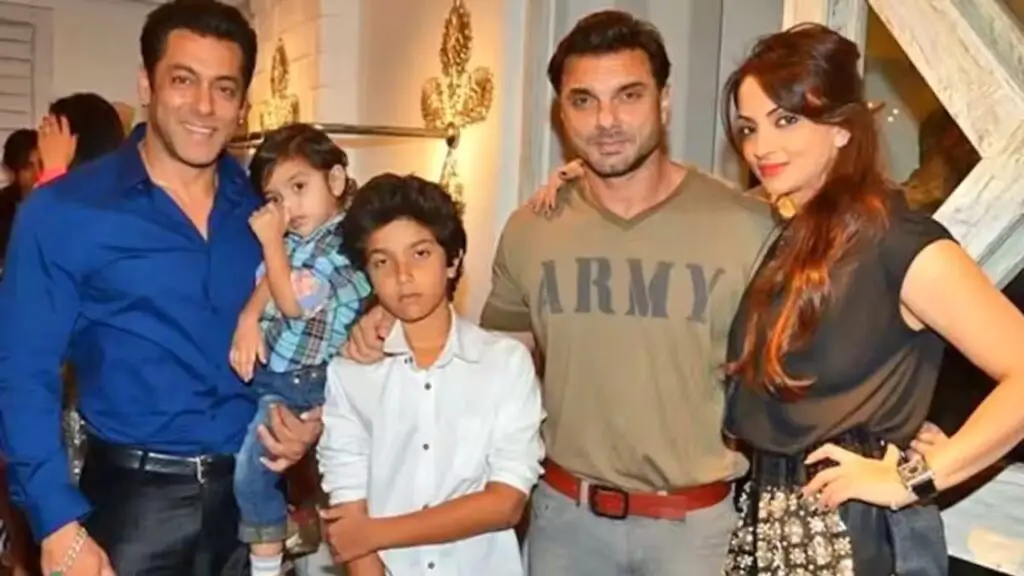Seema Sajdeh opens up about her divorce from Sohail Khan, emphasizing the importance of putting their kids first. Discover valuable insights on navigating co-parenting and maintaining a healthy family dynamic after a split.

Seema Sajdeh and Sohail Khan filed for divorce in 2022; they co-parent sons Nirvaan and Yohan. Seema said she and Sohail ‘have tried to do right by their kids’.
Divorce is hard, and co-parenting comes with its own set of challenges. When you are a celebrity, some of those challenges become amplified, but the kids remain no. 1 priority, according to fashion designer and Fabulous Lives vs Bollywood Wives star Seema Sajdeh. ICYDK, actor-producer Sohail Khan’s ex-wife Seema has found love again. In a recent interview with Bollywood Bubble, Seema opened up about co-parenting her kids with ex-husband Sohail.
‘Kids happiness will always be our top priority’
Seema and Sohail eloped and married in 1998. They filed for divorce in 2022. Seema has moved on and rekindled her relationship with her ex-fiancé Vikram Ahuja. When asked how she and her ex-husband are co-parenting their sons Nirvaan and Yohan, Seema Sajdeh said, “They are the byproduct, and I believe that both of us, Sohail and me, have always tried to do right by our kids. And we have always strived to instill the correct morals and values in them.”
She added, “At the end of the day, they need to know that, whatever happens, both their parents — their mother and father — will always be there for them, no matter what. Their happiness will always be our top priority. No questions asked: we come second; they come first.”
How to shield kids from negativity
Divorce can be confusing and unpredictable for children, who normally thrive on routine and consistency to feel safe. They could show signs of anxiety, which could result in behavioural issues, temper tantrums, and outbursts. Soon enough, parents — no matter how committed to co-parenting they are — could lose control. It’s a frightening proposition for any parent. If you want to better understand your child, but are struggling, try these seven effective parent-kids bonding tips to create a safe space for difficult conversations.

Here are key strategies for protecting kids from the emotional fallout of divorce:
1. Prioritize Open and Honest Communication
It’s crucial to speak to your children in a way that acknowledges the situation without overwhelming them. Depending on their age and maturity, explain that both parents love them and that the divorce is not their fault. Avoid blaming the other parent or discussing adult issues in front of them.
2. Maintain Stability and Routine
Children thrive on stability, so try to maintain consistent routines, including regular mealtimes, bedtimes, and activities. If possible, try to keep them in the same school and home environment to minimize disruptions in their daily life.
3. Keep Adult Issues Private
Divorce is an adult matter, and kids should never be exposed to arguments, financial stress, or other adult problems. Disagreements between parents should be resolved privately, away from the children’s ears, to prevent them from feeling caught in the middle.
4. Encourage a Positive Relationship with Both Parents
It’s essential to support your child’s relationship with both parents, even if you’re experiencing conflict with your ex. Never speak negatively about the other parent in front of the child, and encourage your child to spend quality time with both sides of the family. This helps to prevent feelings of guilt or divided loyalty.
5. Provide Emotional Support and Reassurance
Divorce can make children feel uncertain about their place in the world, so providing reassurance is key. Validate their emotions and encourage them to express their feelings, whether through conversation, play, or art. Let them know that it’s okay to feel sad, confused, or angry, but that they are loved and supported no matter what.
6. Seek Professional Help if Necessary
Children may need extra support to cope with the emotional challenges of a divorce. Therapy or counseling can help children process their feelings and provide them with the tools to manage the changes. A therapist can also help parents navigate co-parenting challenges and find ways to minimize the impact of the divorce on their children.
7. Work on Co-Parenting Cooperation
One of the most effective ways to protect children from the negative effects of divorce is for parents to work together in a cooperative co-parenting arrangement. Regular communication, setting shared goals, and compromising where necessary can help create a more harmonious environment for the children.
8. Be Mindful of New Relationships
Introducing a new partner too soon can be unsettling for children. Be mindful of how and when you introduce a new significant other into your children’s lives, ensuring that it’s a healthy and well-timed transition. Respect your children’s feelings, and let them adjust to changes at their own pace.
9. Focus on Their Well-Being
Ensure your children’s emotional and physical needs are being met during the divorce process. Encourage them to engage in activities that make them happy and help them feel secure, whether it’s playing a sport, spending time with friends, or pursuing hobbies.